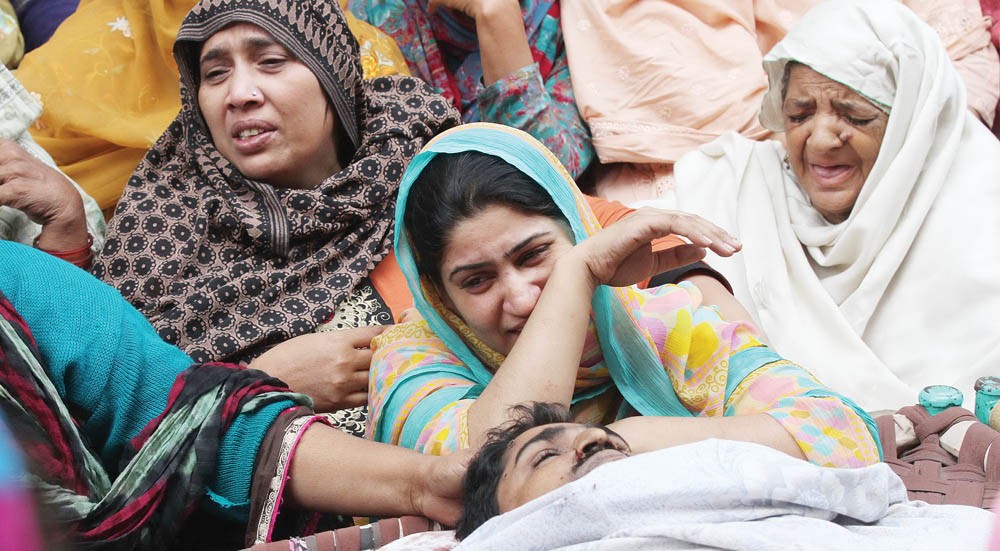
Poor coordination among law enforcement agencies, rescuers and hospitals resulted in the loss of scores of lives in the Wagah Border blast

The loss of human lives in the recent Wagah Border blast could have been minimised if the Punjab government, Punjab Rangers, Lahore Police and emergency rescue providers including Rescue 1122 had developed an effective Central Emergency Response System, incorporating lessons learnt from previous terrorist incidents.
Poor coordination among law enforcement agencies, rescuers and hospitals resulted in the loss of scores of lives.
The incident occurred precisely at 5:30pm. Punjab Rangers initially tried to issue ‘controlled’ information stating that it was the result of a cylinder blast. A few minutes later, Rescue 1122 was provided with the same information and the intensity of the blast was not disclosed. Resultantly, Rescue 1122 and other emergency services took it rather lightly and did not respond in the way they would otherwise have done.
The Rescue 1122 and Edhi Foundation ambulances arrived at the blast scene over half an hour after the incident had happened. They could not reach in time because both do not have any stations close by.
Initially, Rangers officials and the survivors of the blast piled up the injured on trucks and other official and private vehicles to the only nearby Ghurki Hospital. The common people being obviously untrained further delayed a timely and suitable treatment of the victims.
Eventually, the injured were moved to the hospital but the number of doctors on duty at the time of the emergency was not sufficient to handle such a great amount of casualties.
As the rescuers came to know that most of the victims had been shifted to Ghurki Hospital, they rushed to the facility which had been overcrowded. Shifting the critically injured from Ghurki to other hospitals in the provincial metropolis such as Services, Mayo, Shalimar and General took another half an hour’s time.
The doctors and the paramedics believe that a timely response and proper handling of victims could have saved many lives.
The Punjab government seems to have completely ignored the population of Batapur, Manawan, Wagah and its adjacent villages regarding health facilities and emergency services. Interestingly, if a VVIP moves from one place to other, an ambulance of Rescue 1122 is dispatched with him/her. Even if a sports activity is being held at a stadium, emergency services are provided in order to meet any untoward situation. But at the Wagah, which is regarded as a national symbol and thousands of people go there on daily basis to see the flag-lowering ceremony, the law enforcement agencies and Punjab Rangers have got no contingency plan to handle and rescue victims.
It is not only about the lives of thousands of visitors but the place is also important because it’s the Pak-India border area.
Law enforcement agencies claim to have made foolproof security arrangement on different occasions including Ashura-e-Moharram but they never create emergency exits in order to handle a Wagah like situation.
It is said that the law enforcement agencies had suspected a terrorist attack at Wagah. Why, then, could they not develop any contingent plans for the entry and exit of the visitors?
An office bearer of the Young Doctors’ Association (YDA) says, on condition of anonymity, that the Punjab government should centralise an emergency response system through modern technology.
He says the availability of beds at all the public hospitals should be shown to the rescuers through online system in order to improve the response time.
In Lahore, there are only 15 stations of Rescue 1122 in different parts of the city whereas the total strength of the rescuers is only 750 that cater to a population of over 10 million. Edhi Foundation has only four stations in Lahore.
The rescuers say they need move vehicles and staff to maintain standard response time.
A unified effort on the part of the law enforcement agencies, hospitals and rescuers is the need of the hour, if the government means to help the innocent citizens in the event of any such terrorist attack.
According to DG Rescue 1122 Dr Rizwan Naseer, "inaccurate and controlled information caused delay in the response of emergency vehicles at Wagah."
He admits that there are very few health facilities in Batapur and there ought to be a rescue station in the area. "We are focusing on such issues but our priority right now is to provide emergency services in Tehsils and districts," he says.